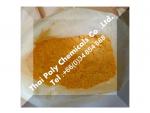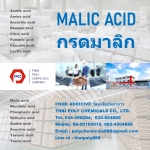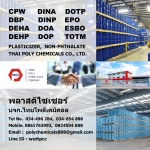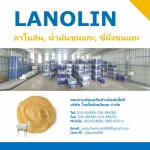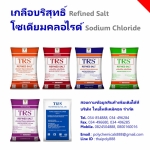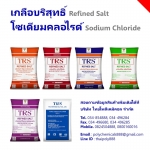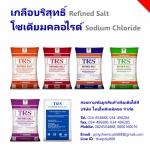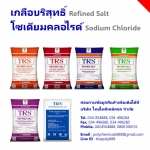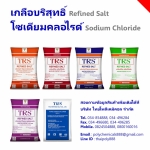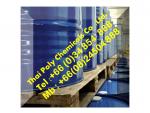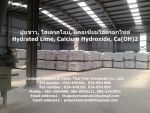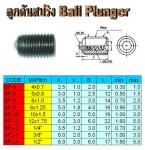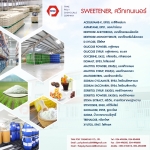Blowing agent ยาพอง สารช่วยให้เกิดโฟม |
฿1 |
|
ชื่อผู้ประกาศ : ไทยโพลีเคมิคอล เบอร์โทรศัพท์ : 034854888 โทรศัพท์มือถือ : 0800160016 ที่อยู่ : 36/5 ม.9 ต.นาดี อ.เมืองสมุทรสาคร จ.สมุทรสาคร 74000 ร้าน Thai Poly Chemicals |
โบลวิ่งเอเจ้น สารช่วยฟู AZD OBSH
Blowing agent, โบลวิ่งเอเจ้น,
ยาพอง, สารช่วยฟู
ยาพองหรือสารฟู
(BLOWING AGENT), เป็นสารที่เติมลงในโพลิเมอร์เพื่อให้สลายตัวเกิดเป็นฟองก๊าซแทรกอยู่ในเนื้อโพลิเมอร์เมื่อได้รับความร้อน ณ อุณหภูมิใดอุณหภูมิหนึ่ง แล้วแต่สารที่ใช้
ใช้ในการผลิตวัสดุประเภทโฟม ฉนวนกันความร้อนรองเท้าฟองน้ำ ช่วยลดปริมาณการใช้โพลิเมอร์ ทำให้ผลิตภัณฑ์มีน้ำหนักเบา
Chemical blowing agents are
organic or inorganic additives used in the manufacture of polymeric foams. The chemical blowing agents in our range are stable under moderate storage decompose at elevated temperatures during the processing of polymers to generate gas which forms a foam structure in the polymer matrix. One of the
The
outstanding features of polymeric foams are weight reduction, the lower amount of polymer which has to be used, resulting in a more economical use of energy
Azodicarbonamide,
or azobisformamide, is a chemical compound with the molecular formula C2H4O2N4. It is a yellow to orange red, odorless, crystalline powder. As a food additive,
Azodicarbonamide
is used in the American food industry as a food additive, a flour bleaching agent and improving agent. It reacts with moist flour as an oxidizing agent. The main reaction product is biurea, a derivative of urea, which is stable during baking. Secondary reaction products include semicarbazide and ethyl carbamate. The United States permits the use of azodicarbonamide at levels up to 45 ppm. In Australia[citation needed] and Europe
Other
uses
The
principal use of azodicarbonamide is in the production of foamed plastics as an additive. The thermal decomposition of azodicarbonamide results in the evolution of nitrogen, carbon monoxide, carbon dioxide, and ammonia gases,
Azodicarbonamide
as used in plastics, synthetic leather and other uses can be pure or modified. This is important because modification affects the reaction temperatures. Pure azodicarbonamide generally reacts around 200 ?C, but there are some products that the reaction temperature must be lower, depending on the application. In the plastic, leather and other industries, modified azodicarbonamide (average decomposition temperature 170 ?C) contains additives that accelerate the
Azodicarbonamide
as a blowing agent in plastics has been banned in Europe since August 2005 for the manufacture of plastic articles that are intended to come into direct
Synonyms
1,1'-Azobisformamide;
AC Blowing Agent; ADC;
C,C'-Azodi(formamide);
ADA; Azobiscarbonamide; Azobiscarboxamide; Azodicarbodiamide; Azodicarboxamide; Azodiformamide; Azodicarbonamide; Diazenedicarboxamide; Diazenedicarbonic; C,C'-Azodi(formamid) (German); C,C'-Azodi(formamida) (Spanish); C,C'-Azodi(formamide) (French); Azobisformamide; 1,2-Diazenedicarboxamide; Other RN.: 183256-78-2, 52737-71-0, 62494-62-6, 62494-61-5, 62494-85-3, 65098-86-4, 65098-87-5, 72514-45-5, 73247-42-4, 73905-77-8, 81774-20-1, 89073-35-8, 97707-96-5, 218433-14-8,
GENERAL DESCRIPTION:
Azo
is the prefix for the group -N=N- or a combining form of azote which share the core azobenzene structure. Azo compounds have a general molecular formula of R-N=N-R', where R is aryl, heteroaryl, -CH=C(OH)- or aliphatic. The extended delocalization of electrons in the benzene and azo groups forms a conjugated system absorbing visible frequencies of light. Aromatic groups provide characteristic colors of red, orange, and yellow. This is the fundamental structure of azo dyes. Aliphatic azo compounds are unstable and the loss of nitrogen gas occurs by the simultaneous cleavage of carbon-nitrogen bonds, resulting in carbon-centered radicals. some aliphatic azo compounds are utilized as radical initiators. Azobisisobutyronitrile is a typical initiator of free radical reactions for the production of polymer (polyvinyl chloride, polyacrylonitrile, polyvinyl alcohol and synthetic fibers) and as a blowing
Azodicarbonamide,
releasing nitrogen gas, is a general foaming agent for rubbers and plastics such as PVC, EVA, polyolefin, polystyrene products. (Its temperature of decomposition is 205 - 215 C). Food grade of Azodicarbonamide is used as a flour aging and bleaching ingredient in cereal flours and dough conditioner in baking bread. It reacts with moist flour as an oxidizing agent. Azodicarbonamide acts as a hydrogen acceptor, converting to biurea. The United States allows azodicarbonamide to be added to flour at levels up to 45 ppm. Use of azodicarbonamide as a food additive is banned in Australia and in Europe. The pharma grade of Azodicarbonamide molecule is used as an Anti-HIV agent, Anti-Infective Agent, Anti-Retroviral Agent, Antiviral Agent, Immunologic
DESCRIPTION OF BLOWING AGENT
Blowing
agents, also called foaming agents, can be classified as Physical and Chemical Blowing Agents. Physical blowing agents are not under chemical changes during processing. Physical blowing agents are in forms of liquid or compressed gas which will transfer state into gases or low boiling liquid during processing causing resins into cellular structure. Chemical Blowing Agents are mainly solid form of hydrazine derivatives include Azodicarbonamide; p,p'-Oxybis(benzenesulfonyl hydrazide); 5-Phenyltetrazole; p-Toluene sulfonyl semicarbazide; Trihydrazine Triazine; They commonly release gases such as nitrogen, carbon dioxide, carbon monoxide or ammonia. But ammonia is not desirable as it effects on degrade of resins. There are nonazo blowing agents
Safety
In
the United States, azodicarbonamide has generally recognized as safe (GRAS)
In
the UK, the Health and Safety Executive has identified azodicarbonamide as a respiratory sensitizer (a possible cause of asthma) and determined that
Toxicological
studies of the reactions of azodicarbonamide show that it is rapidly converted
Product Description
ADC Foaming Agent
Azodicarbonamide / AC Blowing Agent
CAS No: 123-77-3
H. S. Code: 2927000090
Molecular form ula: NH2CON=NCONH2(C2H4N4O2).
Molecular weight: 116.08.
Properties: This product is faint yellow powder. At normal atmospheric
temperature, it can be stored for a long time and it is not easy to go bad or
to lump.
This product is a strong organic foaming agent of heat decomposition type. The
decomposition temperature range is small. This product can be decomposed into
N2, CO, CO2. The product is free from poison, smell, color and pollution, but
it can be decomposed at high temperature(>120 Centigrade).
Uses: It is used as a foaming agent for producing various foamed plastics. It
is suitable for foaming plastic PVC, EVA, PP, PE, PS etc., especially suitable
for producing imitation leather and plastic products with high demands and
dense, homogeneous apertures. This product is used for obtaining the produced
products with good elasticity, homogeneous foamed apertures and high strength.
Packaging: 25kg/Carton
Storage: In the process of transportation and storage, this product can't be
placed hear and heat source and should be prevented from strong bump and
wetness.
สอบถามข้อมูลเพิ่มเติมได้ที่
ฝ่ายขาย
Thai
Poly Chemicals Co., Ltd.
บริษัท
ไทยโพลีเคมิคอล จำกัด
ที่อยู่36/5
ม.9 แขวง/ตำบลนาดี เขต/อำเภอเมืองสมุทรสาคร จังหวัดสมุทรสาคร รหัสไปรษณีย์74000
Tel.:
034854888, 034496284
Fax.:
034854899, 034496285
Mobile:
0824504888, 0800160016
Website
: www.thaipolychemicals.com
Email1 : thaipolychemicals@hotmail.com
Email2 : info@thaipolychemicals.com
สารช่วยให้เกิดโฟมเอโซไดคาร์โบนาไมด์ยูวีสเตบิไลเซอร์foamingazodicarbonamideยาพองโบลวิ่งเอเจ้นagentblowingstabilizer

